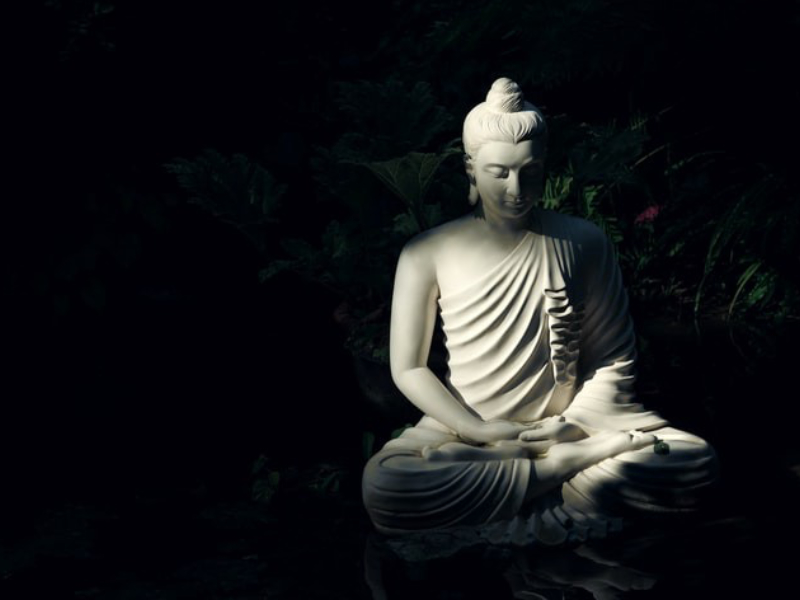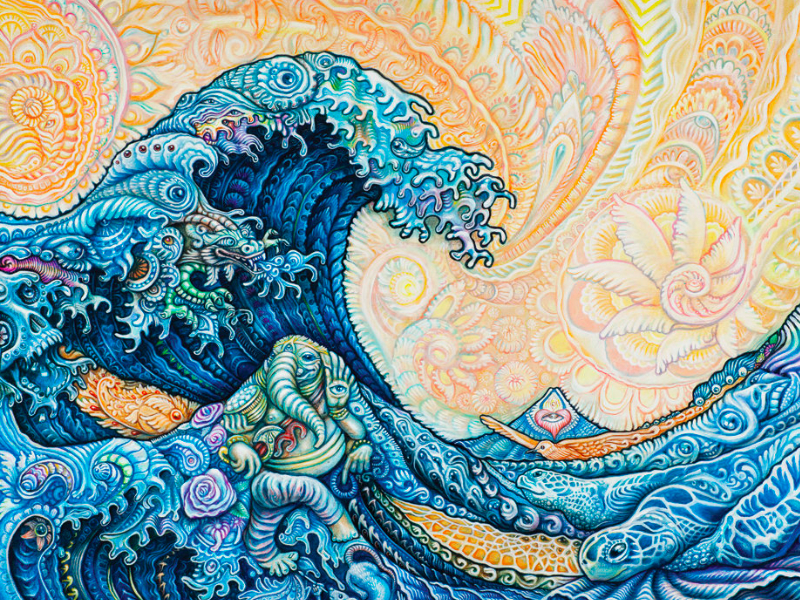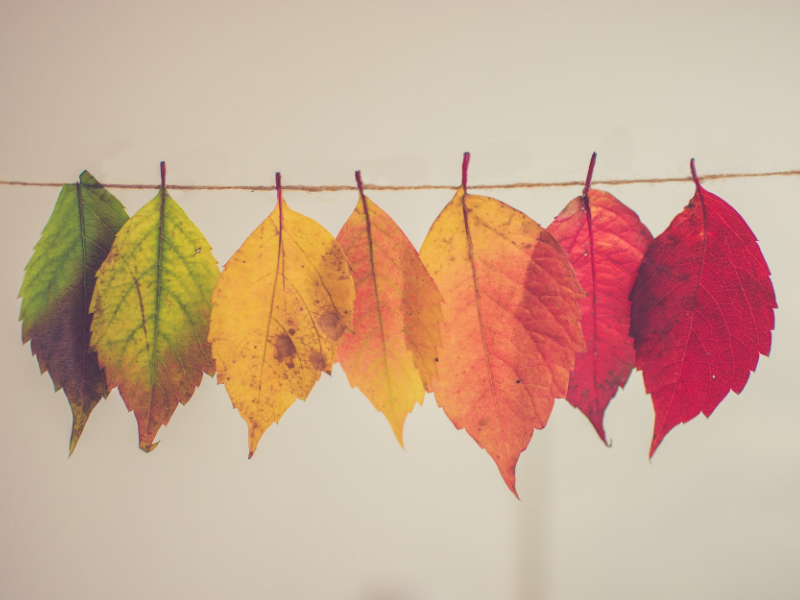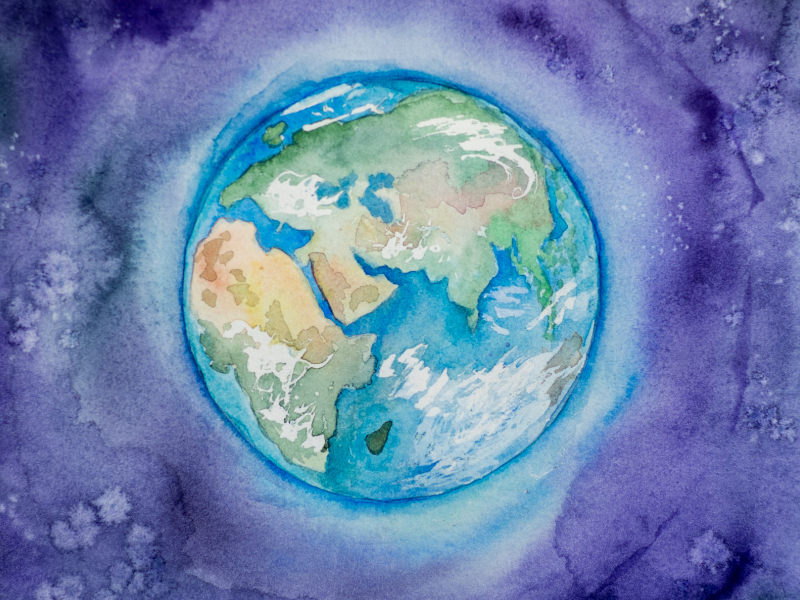Everything Changes
– Meditation on Change & Suffering –
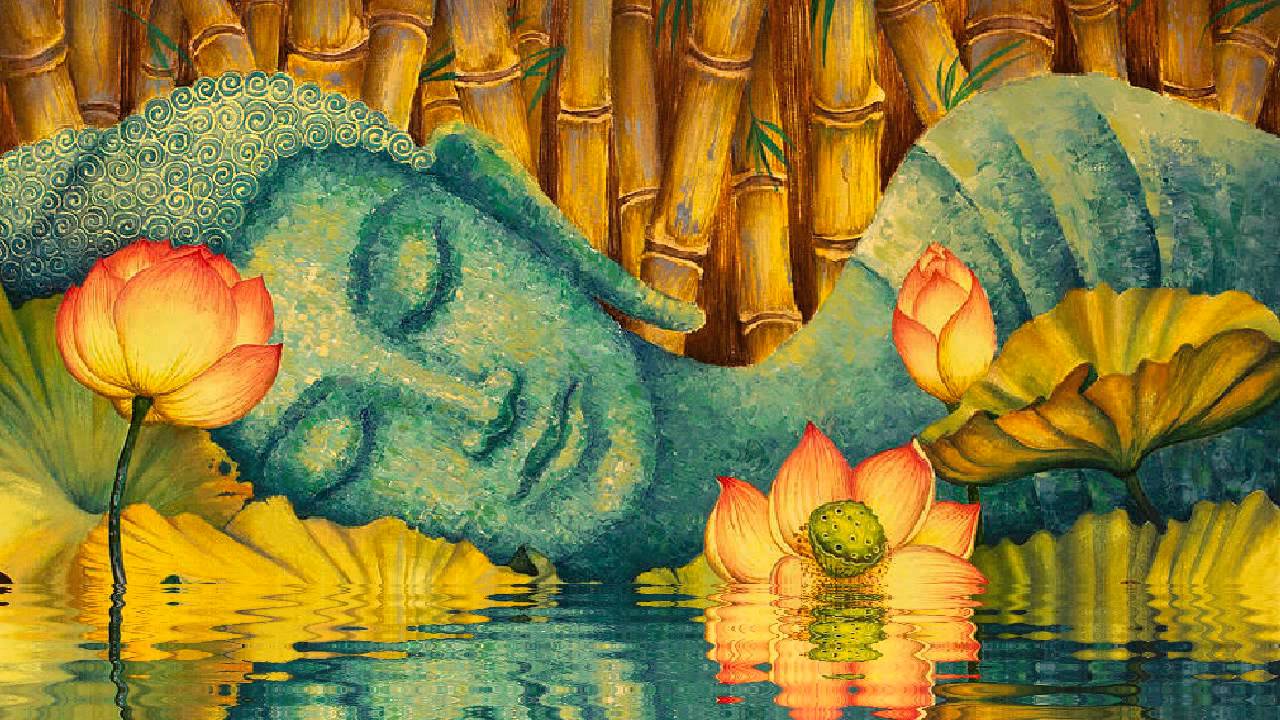
Some five hundred years before Christ, the Greek philosopher Heraclitus noticed a strange paradox:
‘The world appears to be filled with things. Yet all these things change in time, even if we don’t perceive the change directly. Winds blow, rivers flow, and children grow.’ But how, Heraclitus wondered, can a thing change yet remain the same thing?
This problem of change led Heraclitus to propose that, in truth, there are no things. But rather only a single and continuous process of change.
‘The world is on fire,’ he claimed. ‘Those who look but do not think, believe only the fuel burns, while the bowl in which it burns remains unchanged. Yet the bowl burns. It is eaten up by the fire that holds it. Fire is all that is.’
A thing, then, is like a flame – though it may appear to have a definite shape, it’s actually just a part of the Everlasting Fire.
Heraclitus
“No one steps in the same river twice, for the river is not the same river and the person is not the same person… Nothing endures but change… All that is, was, and ever will be is the Everlasting Fire.”
It’s no secret everything changes. You know this, I know this, we all know this. We watch the sun rise and set. We feel the seasons turn. Our experience this morning isn’t the one here now. We know that entire species and civilizations have come and gone. Stars and galaxies are born and fade away. Not even the very fabric of space and time is stable.
But how many of us really understand the implications of this truth? How many of us live as if we understand this – that there are no stable, unchanging things, that everything is always in flux, that our experience is one seamlessly connected flow of ever-changing perceptions, sensations, thoughts, and feelings?
* * *
Around the same time as Heraclitus, there was another to the east who had this same insight. In his search to understand suffering and its end, the Buddha realized that suffering arises when we lose direct sight of this truth of change, when our awareness gets lost in the world of appearances, when awareness identifies itself with concepts, when we forget that the flame is not apart from the Everlasting Fire.
All suffering, then, all discontent and unease, stems from the mistaken view that an independent and stable self sits at the center of experience, clinging to things it believes to be its own (e.g., “my” anger, “my” body, “my” pain, “my” joy). If we hold onto that which by its nature changes, which is everything, then we will suffer.
His solution, then, is simply to let go and float seamlessly through the stream of nibbana, to recognize that as a matter of direct experience no thing can reliably be identified as “I” or “mine,” to recognize that in a seamless, interconnected world of change there is no place where the “I” can take a stand.
Wisdom, then, the Buddha tells us, arises out of paying careful attention to the truth of impermanence, it arises by meditating on the direct experience of change and suffering. In seeing impermanence, you don’t cling.
When the mind doesn’t cling, it is not agitated. And when the mind is not agitated, you experience awakening, also known as the highest peace, freedom, or liberation.
If you want to embody a lasting peace, I invite you to know this, not conceptually, but directly. I invite you to connect to, to witness and know, the every-changing nature of experience. Observe the changes not only of every year, of every month, of every day, but of every moment.
Practice vipassana and see for yourself what profound shift awaits you. See for yourself whether your mind becomes softer and more relaxed, whether it becomes more open and receptive. See whether you are better situated to engage more wisely with whatever is arising. See for yourself whether you find lasting peace.
The Buddha
“One abides independent, not clinging to anything in the world… When in the seen, only what is seen; when in the heard, only what is heard; when in the sensed, only what is sensed; when in the known, only what is known. When it is understood that there is not both a knower and what is known, but only knowing, then it is impossible for ‘you’ to be bound to or even influenced by that which is arising, since ‘you’ will be neither here in the sense bases nor there in the sense object, nor anywhere between. This is the end of suffering.”
More Articles
“The Art of Bare Attention”
Today we’re going to talk about the ancient Buddhist practice vipassana, or insight meditation. Now, just to be clear, this is an entirely secular practice. It doesn’t require you to adopt any dogmatic beliefs…
“The Faceless Seer”
How do you hold your love? Do you hold her from stillness, with nowhere to go, with nothing to do? How do you hold your love? Do you hold her with acceptance, with open hands and arms, with unabashed…
“Everything Changes”
It’s no secret everything changes. Your experience this morning isn’t your experience now. Yet how many of us act like we really understand this? How often do we grasp onto the illusion of things…
“The Divine Connection”
How do you hold your love? Do you hold her from stillness, with nowhere to go, with nothing to do? How do you hold your love? Do you hold her with acceptance, with open hands and arms, with unabashed…

